X
wikiHow is a “wiki,” similar to Wikipedia, which means that many of our articles are co-written by multiple authors. To create this article, 27 people, some anonymous, worked to edit and improve it over time.
This article has been viewed 61,730 times.
Learn more...
So, are you bored at home? Well, read on and find out how to have fun as a kid playing doctor with your pals or family members!
Steps
-
1Get your doctor's kit together. You need some tools and instruments to be a doctor! You can use a toy doctor's kit, or you can make your own using kitchen utensils, pencils, blocks, other toys, or anything else that you can pretend to be medical instruments.
- If you have it, wear a white coat and a stethoscope! There are toy stethoscopes that actually work, use one if you have one.
-
2Find someone to play with. You'll need patients - they can be a sibling, friend, or even stuffed animals.Advertisement
-
3Gather some papers so you can do fake paperwork. You can pretend to take notes and fill in charts about your patients, write prescriptions for medicine, and look illnesses up in books. You can keep it simple with blank/scrap paper, or you can write and draw details!
-
4Make fake beds so your patients can go to sleep. Don't forget to make them comfortable!
-
5Start by having the patient lie or sit on the bed. Knock on the door and then come in.
-
6First, ask the patient if it hurts anywhere.
-
7You will then need to take their temperature using a toy thermometer. Put it under the patient's arm and leave it there before taking a reading.
-
8Next, get the stethoscope and listen to the patient's heart. Ask your patient to lift up their shirt to expose their chest or remove it. Then, put the stethoscope in your ears and hold it against the bare skin of the patient's chest. Listen carefully to the thumping sound of the patient's heart beating.
-
9You should then listen to the patient's lungs. Ask them to lift up or remove their shirt. Put the stethoscope in your ears and hold it against the bare skin of their chest. Ask them to take deep breaths in and out through their open mouth. Repeat using the same method holding the stethoscope against the bare skin of the patient's back.
-
10Ask the patient to lie down. If they are wearing two shirts, ask them to lift up one. Listen to the patient's heart again. You can hold the stethoscope against the bare skin of their belly and listen for rumbling and gurgling noises.
-
11Tell your patient to open their mouth, stick out their tongue, and say "aah". Use a flashlight to inspect the throat and peer at the tonsils. Use the same flashlight to check their eyes and nose. Use an otoscope to look into the ears.
-
12Decide if the patient has any symptoms and either give an injection or prescribe some pretend medicine as appropriate.
-
13Have fun and enjoy the game. Get into the pretending - pick fake names, try helping different kinds of patients, and go along with the ideas and twists that your friends come up with.
Advertisement
Community Q&A
-
QuestionI'm 13 and I want to play doctor. Is that okay? Am I too old?
 Abby ElizabethCommunity AnswerYou can play doctor at any age! And maybe, when your old enough, you can be a real doctor.
Abby ElizabethCommunity AnswerYou can play doctor at any age! And maybe, when your old enough, you can be a real doctor. -
QuestionWhat if you do not have a stethoscope?
 Community AnswerYou can buy a toy stethoscope, or make one yourself! Be creative.
Community AnswerYou can buy a toy stethoscope, or make one yourself! Be creative. -
QuestionWhat items should be in my doctor kit?
 Community AnswerHere are some things you can include: a stethoscope, bandages, a reflex hammer, an otoscope, thermometer, and a blood pressure monitor.
Community AnswerHere are some things you can include: a stethoscope, bandages, a reflex hammer, an otoscope, thermometer, and a blood pressure monitor.
Advertisement
Warnings
- Always ask your parents for permission to use something that are not yours.⧼thumbs_response⧽
- Do not play with tools that aren't toys. Someone can get hurt.⧼thumbs_response⧽
Advertisement
Things You'll Need
- Doctor's kit
- Toys
- Blankets
- Your bed (or a fake bed)
- Friends, siblings, or stuffed animals for patients
- Papers and pens/pencils
- Doctor's uniform
- Snacks
About This Article
Advertisement
-Step-1-Version-2.webp)
-Step-2-Version-2.webp)
-Step-3-Version-2.webp)
-Step-4-Version-2.webp)
-Step-5-Version-2.webp)
-Step-6.webp)
-Step-7.webp)
-Step-8.webp)
-Step-9.webp)
-Step-10.webp)
-Step-11.webp)
-Step-12.webp)
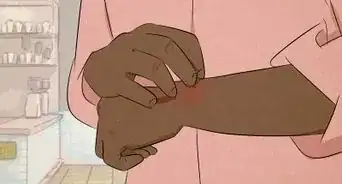




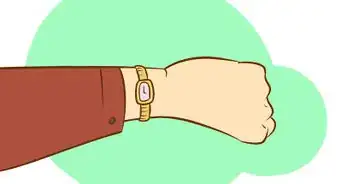

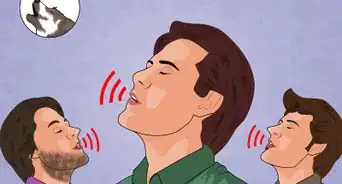
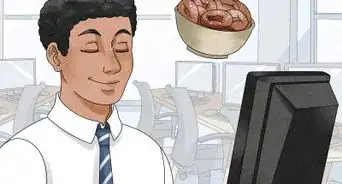
-Step-8.webp)






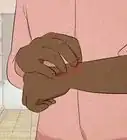






































Medical Disclaimer
The content of this article is not intended to be a substitute for professional medical advice, examination, diagnosis, or treatment. You should always contact your doctor or other qualified healthcare professional before starting, changing, or stopping any kind of health treatment.
Read More...